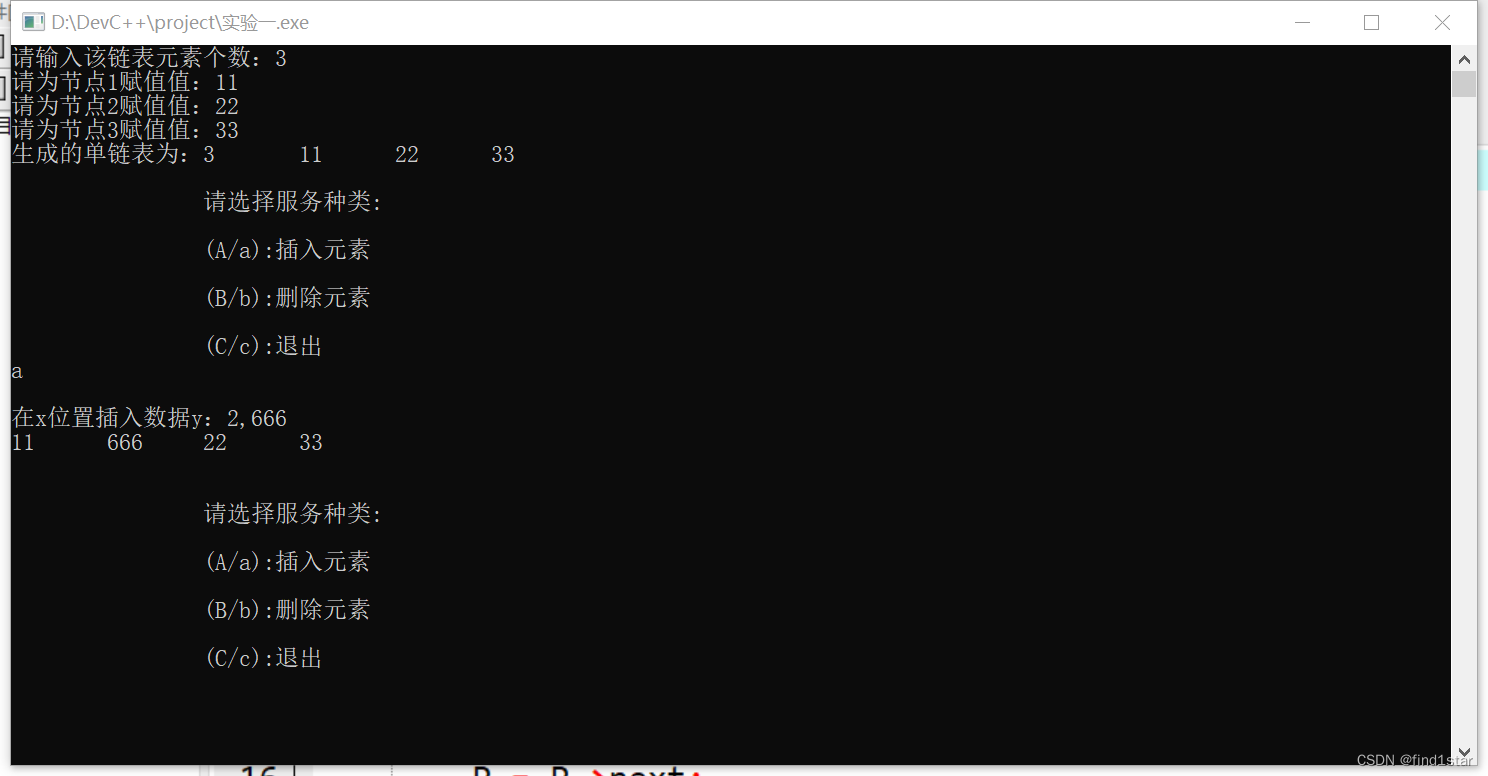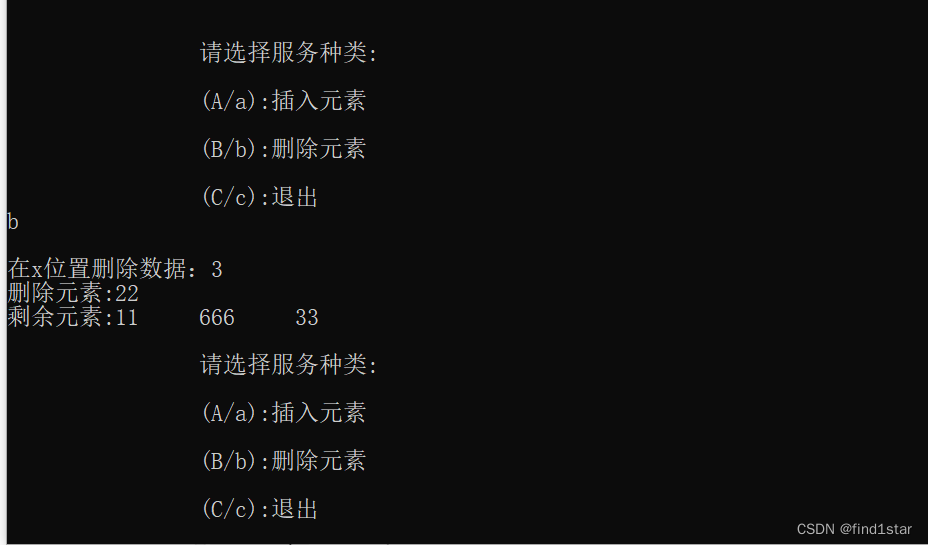实验内容
建立带头节点的单链表,编写算法,在第i个位置前插入一个新元素,在第j个位置删除一个元素
运行过程:
手动输入单链表长度并且依次赋值,头节点存放单链表长度
展示单链表(包括头结点)
switch case 选择操作
效果图:


完整代码:
#include<stdio.h>
#include <stdlib.h>
struct node {
int data; //数据域
struct node *next; //指针域
};
// 在第i个元素之前插入数据元素e
int ListInsert_N(node *N,int x,int y) {
struct node *P,*S;
P = N;
S=(struct node *)malloc(1*sizeof(struct node));
int J = 0;
while (P && J < x - 1 ) {
P = P->next;
++J;
}
if (!P || J > x ) {
printf("数据不合法");
return 0;
}
S->data = y;
S->next = P->next;
P->next = S;
P = N->next;
while(P) {
printf("%d\t",P->data);
P=P->next;
}
printf("\n");
return 0;
}
//单链表 删除第i个结点 返回所删除的数据
int ListDelete_N(node *N,int x,int num) {
if(x>num){
printf("数据不合法");
return 0;
}
struct node *P,*S;
P = N;
S=(struct node *)malloc(1*sizeof(struct node));
int J = 0;
while (P&& J < x - 1) {
P = P->next;
++J;
}
if (!(P->next) || J > x) {
printf("数据不合法");
return 0;
}
S = P->next;
P->next = S->next;
printf("删除元素:%d\n",S->data);
free(S);
P = N->next;
printf("剩余元素:");
while(P) {
printf("%d\t",P->data);
P=P->next;
}
return 0;
};
int main() {
int i,num,x,y;
char choose;
struct node *head ,*N;
//生成一个有头节点链表
head=(struct node *)malloc(1*sizeof(struct node));
N=head;
printf("请输入该链表元素个数:") ;
scanf("%d",&num);
N->data=num;
for(i=0; i<num; i++) {
N->next = (struct node *)malloc(1*sizeof(struct node));
N = N->next;
printf("请为节点%d赋值值:",i+1);
scanf("%d",&N->data);
}
//尾结点next为NULL
N->next = NULL;
// 重新设置N的指向;
N=head;
printf("生成的单链表为:");
while(N) {
printf("%d\t",N->data);
N=N->next;
}
N=head;
while(1) {
printf("\n\n\t\t请选择服务种类:");
printf("\n\n\t\t(A/a):插入元素");
printf("\n\n\t\t(B/b):删除元素");
printf("\n\n\t\t(C/c):退出\n");
scanf("\t\t\t%s", &choose);
switch (choose) {
case'A':
case'a': {
printf("\n在x位置插入数据y:");
scanf("%d,%d",&x,&y);
ListInsert_N(N,x,y);
break;
}
case'B':
case'b': {
printf("\n在x位置删除数据:");
scanf("%d,%d",&x);
ListDelete_N(N,x,num);
break;
}
case'C':
case'c': {
return 0;
break;
}
default :
printf("输入不合法");
break;
}
}
return 0;
}
初学数据结构,写的不好,对指针的使用也不是特别熟练,望见谅
版权声明:本文为find1star原创文章,遵循 CC 4.0 BY-SA 版权协议,转载请附上原文出处链接和本声明。